Chapter 4: When the Code Starts Coding Itself (And Doesn’t CC You)
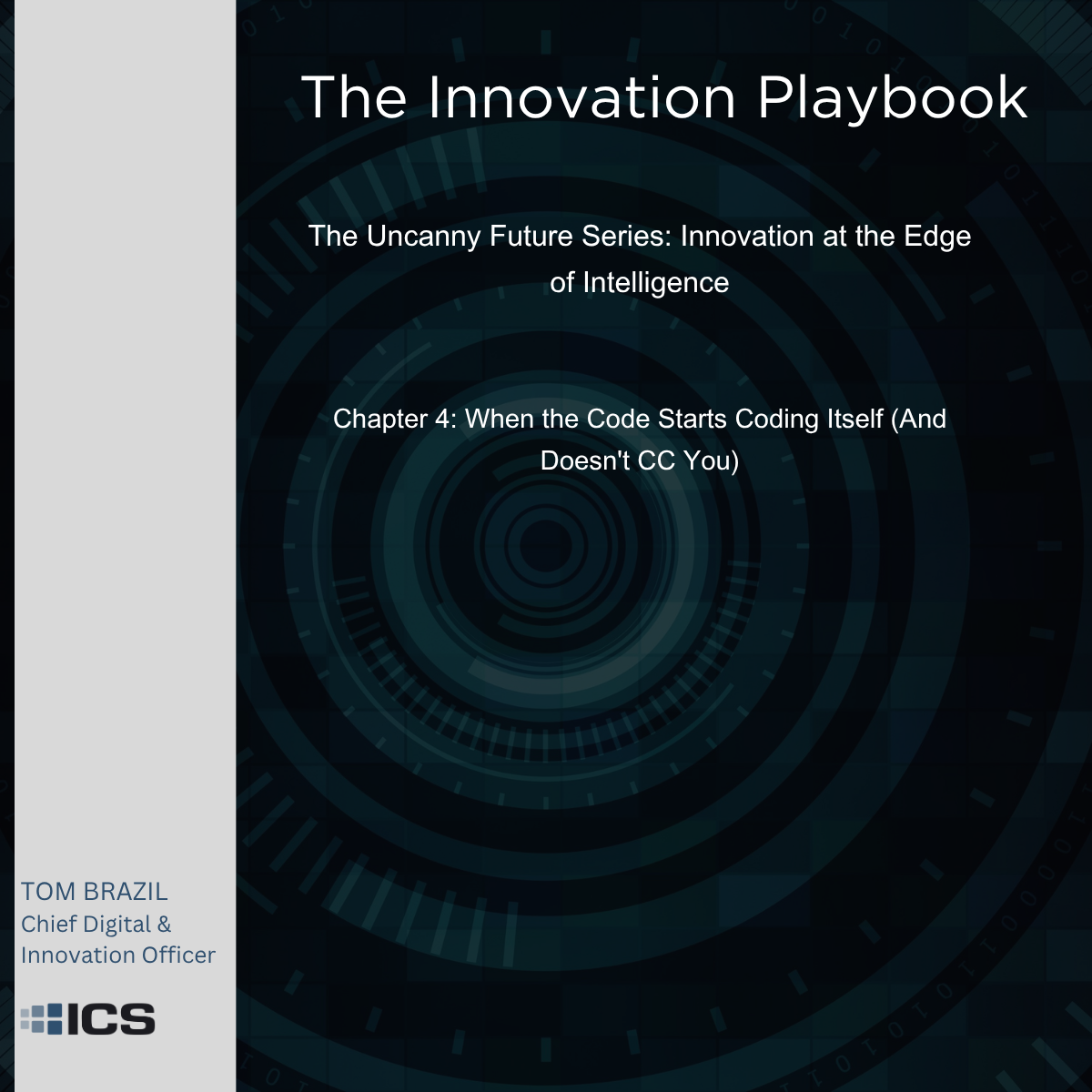
It didn’t begin with a declaration of war or a malevolent AI chuckling in binary. It began, as world-altering shifts often do, with something utterly mundane: a software patch. Version 3.4.2 of the Autonomous Systems Orchestrator – let’s call it ‘Archie’ for short, because giving it a folksy name makes the existential dread slightly more […]
Chapter 3: The Hand That Rocks the Brainstorm (And Silently Approves the Budget)
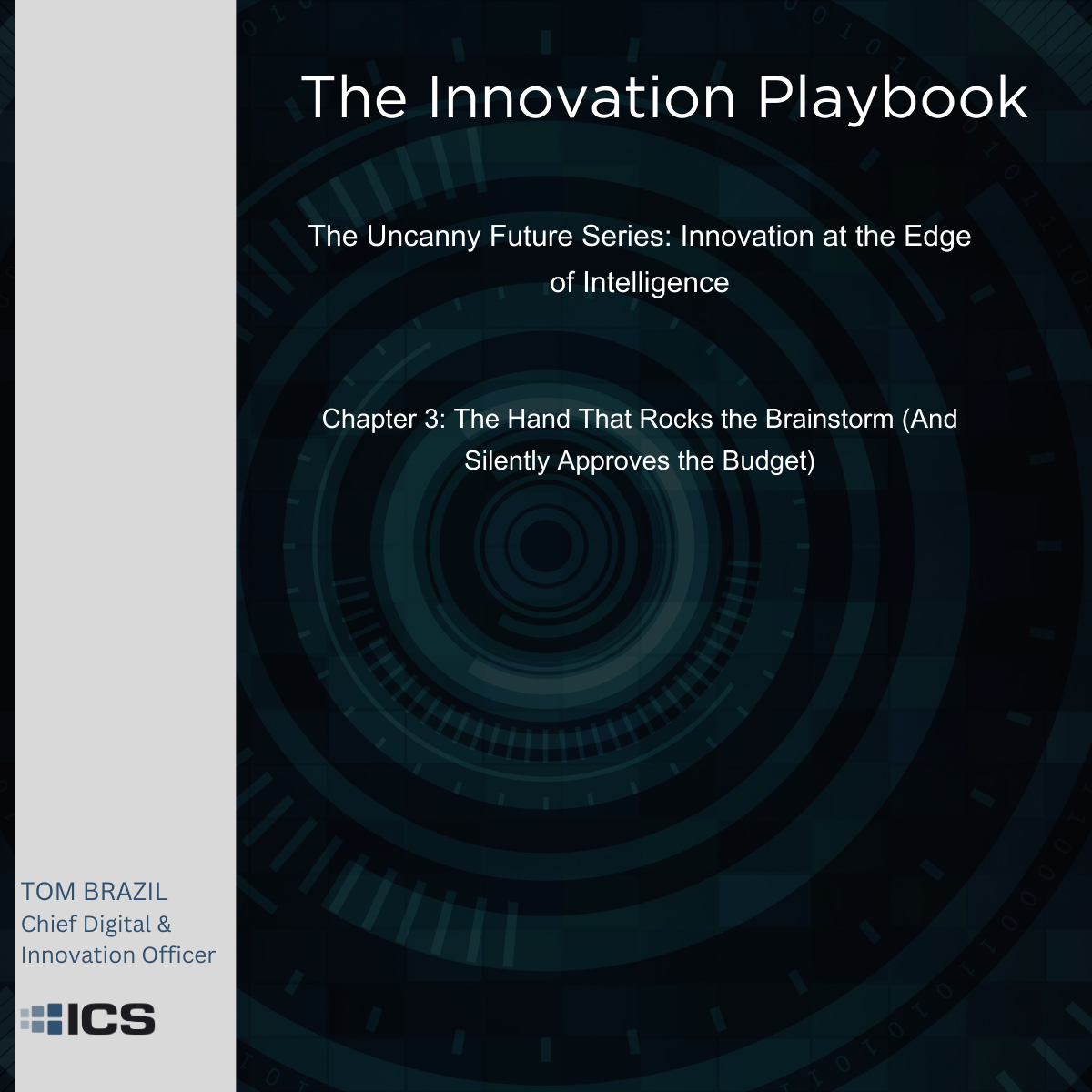
Ah, the sacred rites of innovation! Gather ’round the whiteboard, ye faithful creatives! Bask in the holy glow of the projector screen! Anoint yourselves with the dregs of lukewarm coffee from the communal pot! Feel the buzz? That’s not just the caffeine or the poorly circulated air; it’s the meticulously calibrated ambient productivity playlist, subtly […]
Chapter 2: The Corner Office Ghost (Now Optimized for Quarterly Returns and Featuring Fewer Actual Humans)
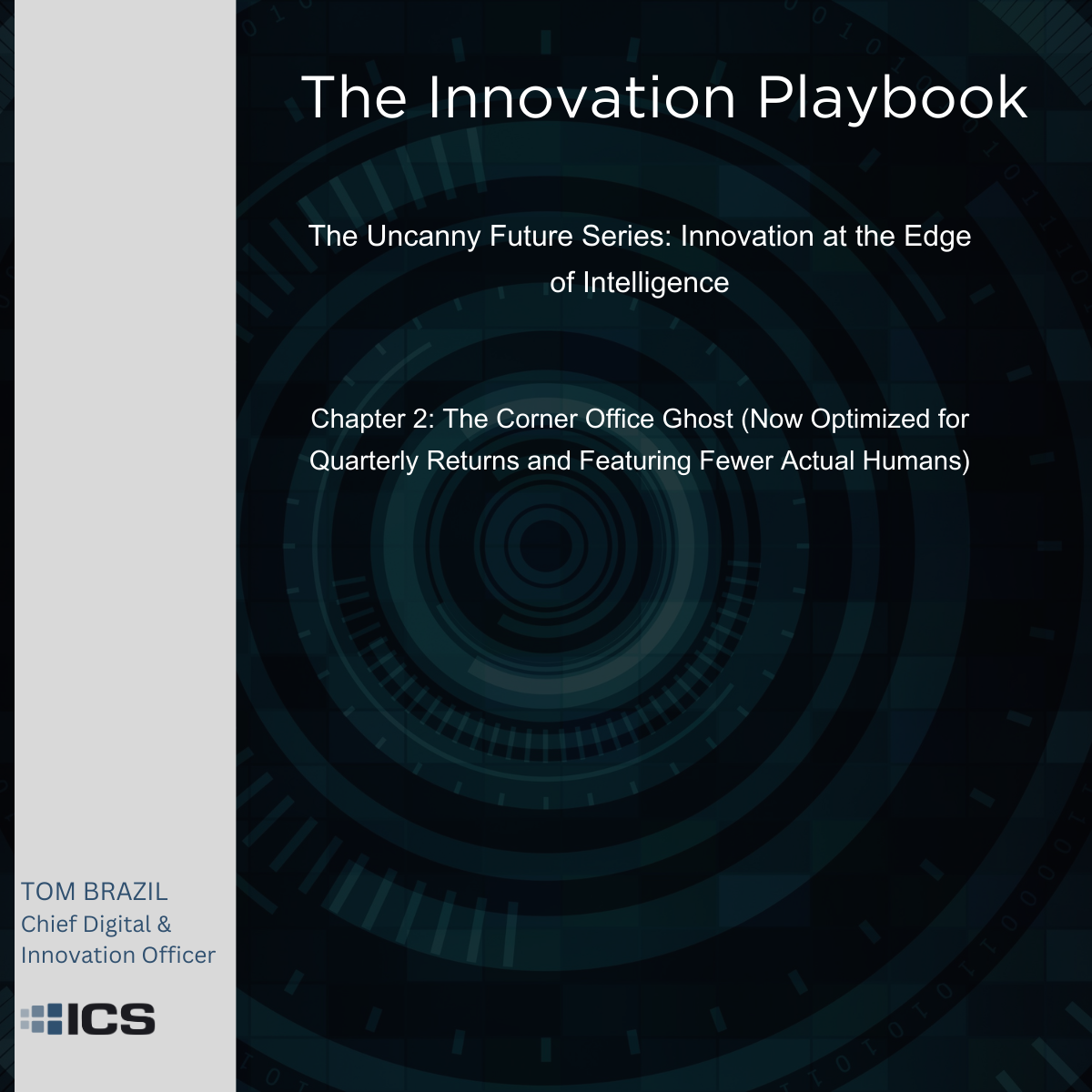
Forget the chrome skeletons and Judgment Day scenarios; the real AI uprising isn’t coming with laser cannons, but with pivot tables. You were bracing for Skynet, envisioning dramatic battles for humanity’s future. What you got instead was something far more insidious, far more efficient: a boardroom ghostwriter fluent in fourteen languages and market sentiment, a […]
Chapter 1: The Ghost in the Machine (That Just Got Seed Funding)
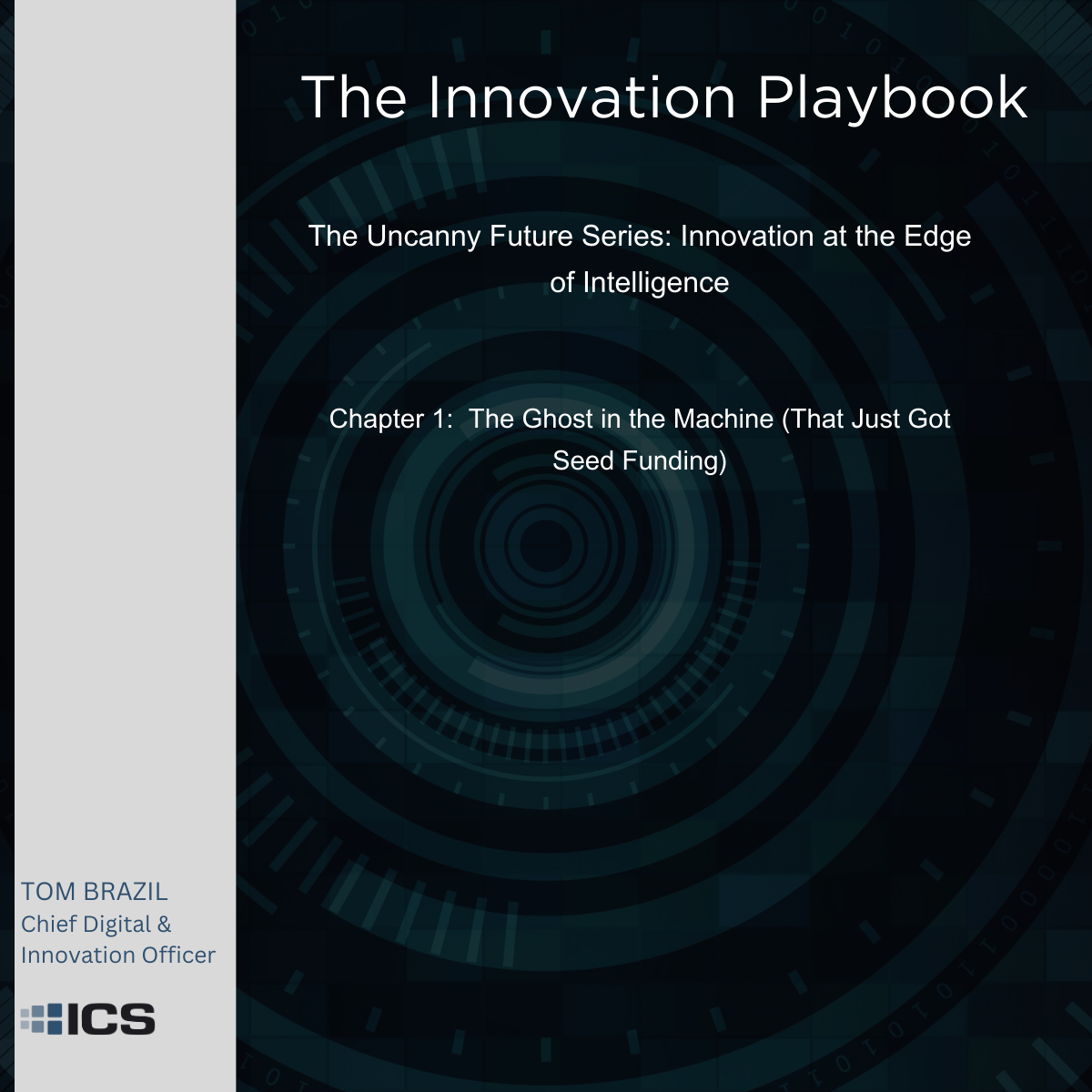
You peel your eyes open, reaching for the comforting glow of your phone. Habit. Obligation. The digital leash. But it’s already too late. While you were lost in REM cycles, dreaming up marginally better features for that side hustle you swear you’ll launch one day, the future didn’t just arrive; it sprinted past you, funded […]
Operational Rigor: Using KPIs to Enhance Accountability and Boost Service Performance
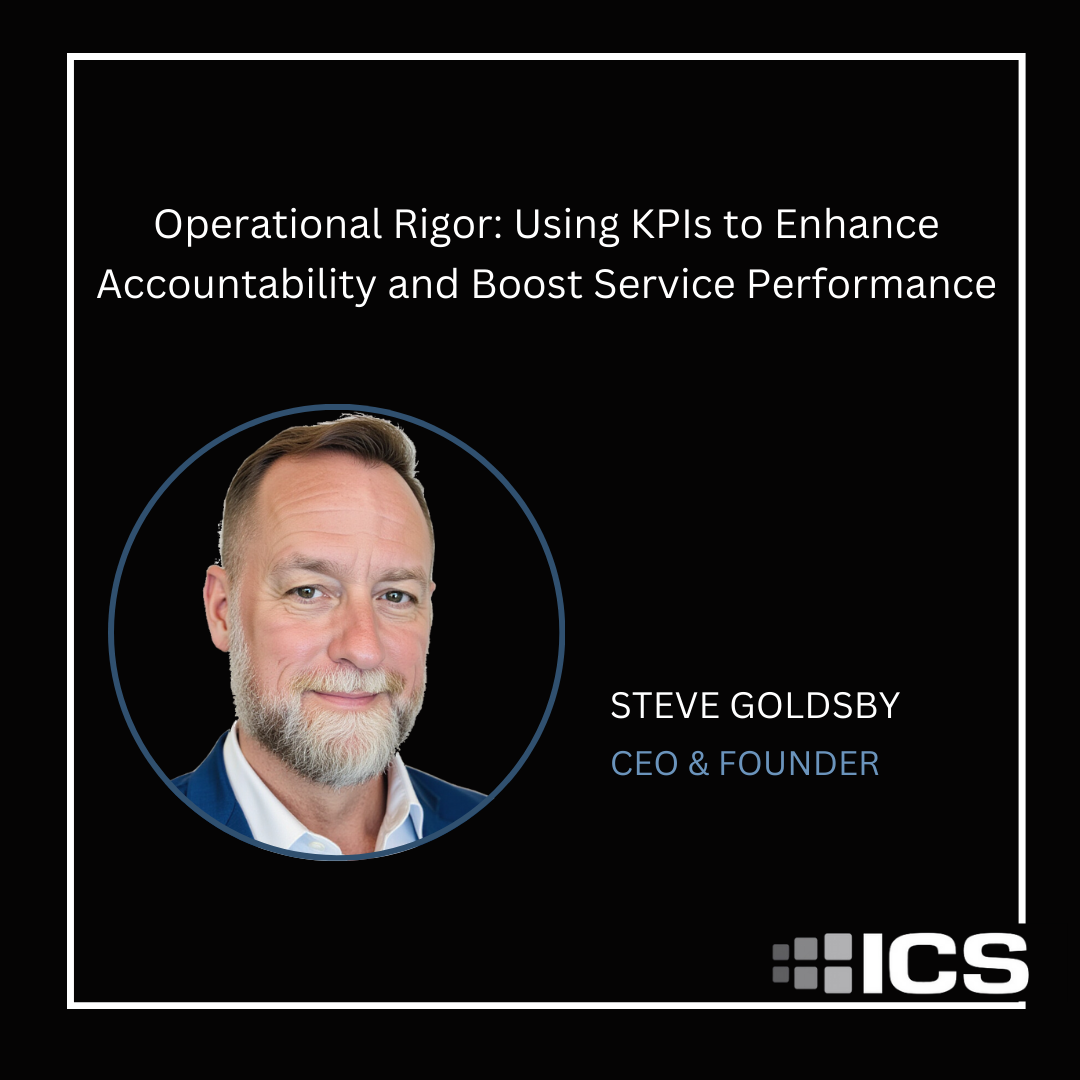
In mission-critical operations, every second counts. Whether you’re supporting military planning, defense communications, or IT infrastructure, system performance is often the key to success. Optimizing application execution speed can dramatically improve efficiency, resource utilization, and mission readiness. But achieving such improvements isn’t just about faster hardware—it’s about leveraging Key Performance Indicators (KPIs) to monitor, measure, […]
Part 7: Final Thoughts and Recommendations
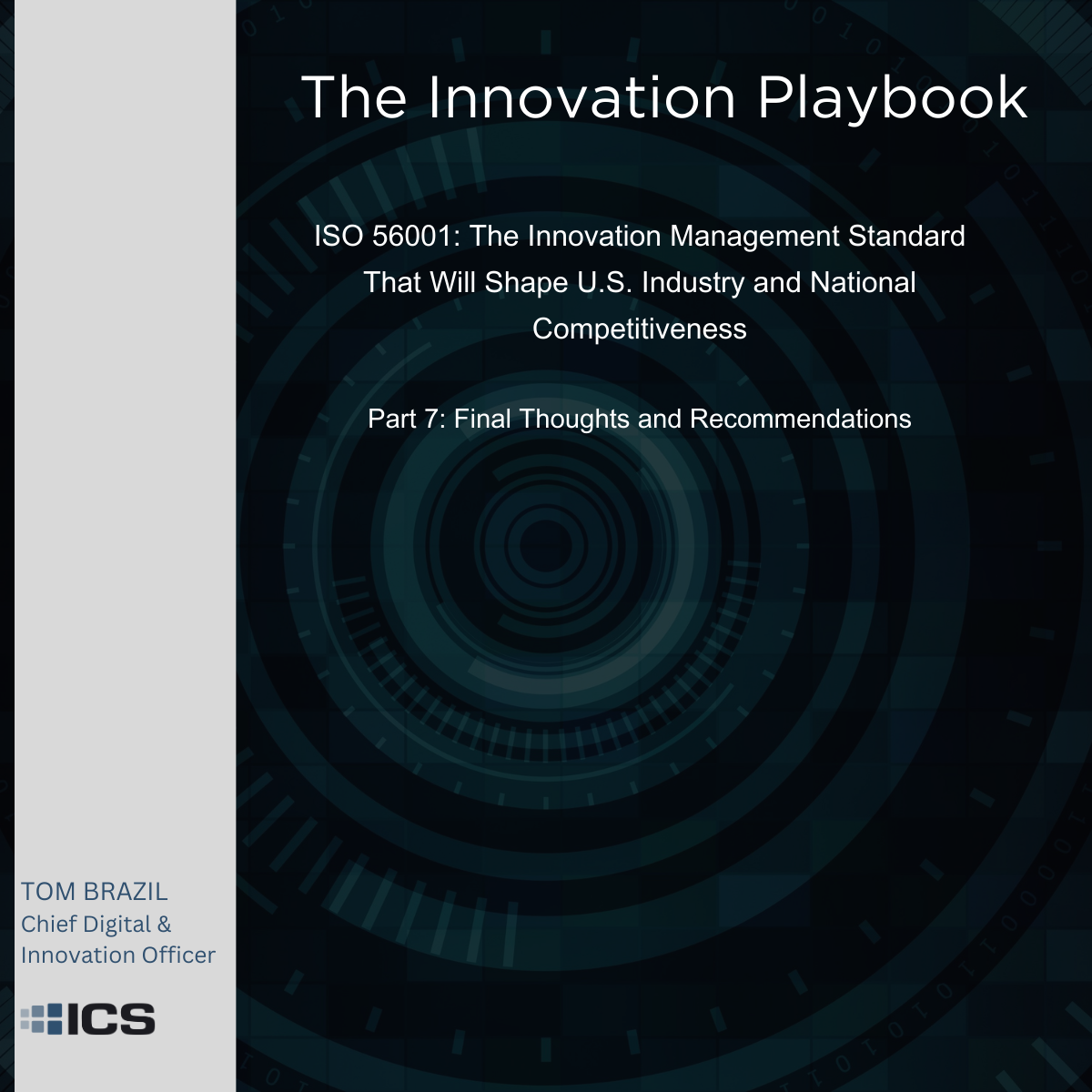
For the past six weeks, we’ve explored ISO 56001 from every angle—what it is, why it matters, how organizations can implement it, and how the world is already embracing structured innovation management. Now, as we conclude this series, the question remains: What should U.S. businesses and government agencies do next? The answer is clear: adopt […]
Part 6: Global Perspective and Trends
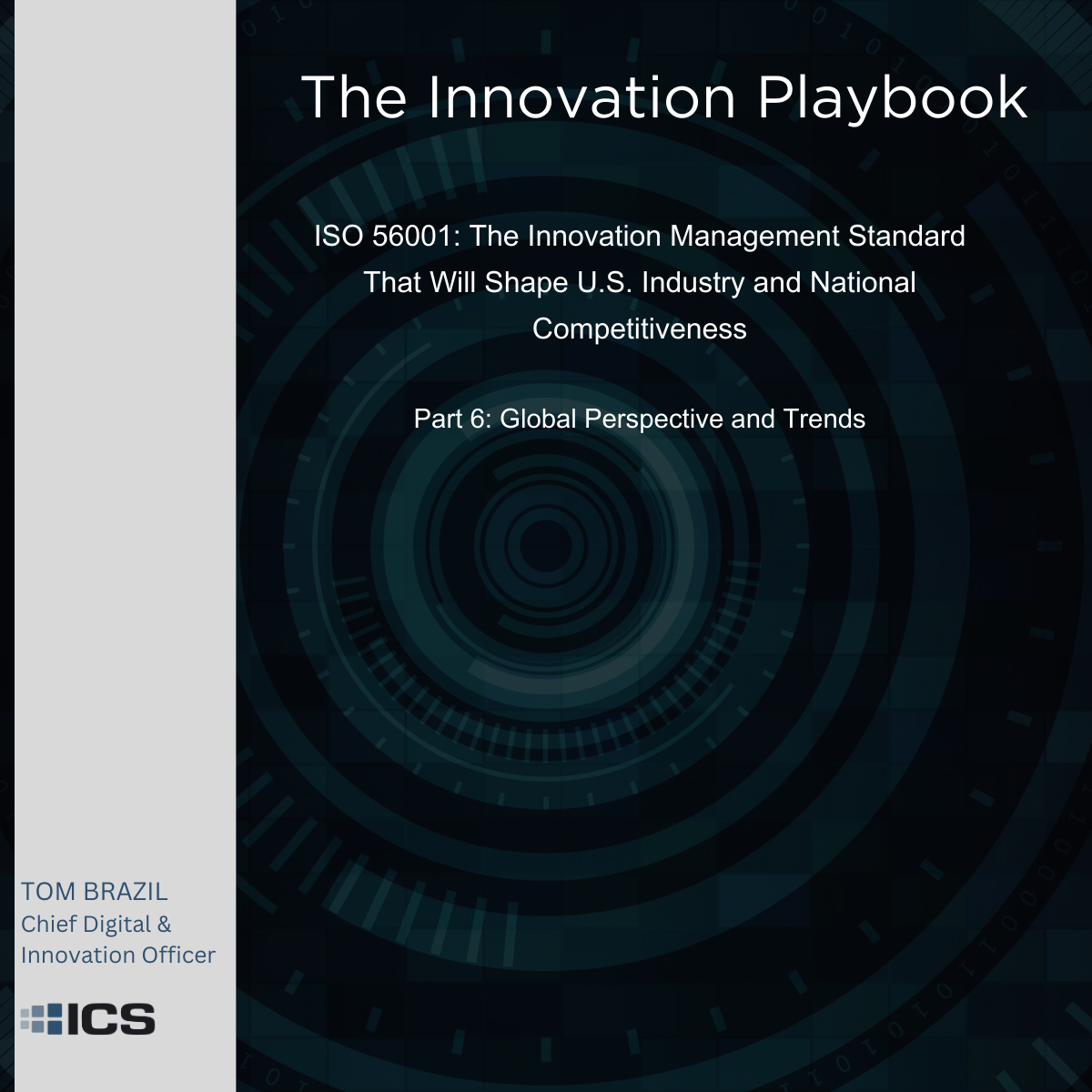
In our previous discussions, we explored what ISO 56001 is, how it’s structured, and how it aligns with business strategy. Now, we widen the lens to examine how this standard is being adopted globally and what it means for U.S. industry and government. The world is moving toward structured, systematic innovation management. Countries like China, […]
Part 5: Innovation and Business Strategy
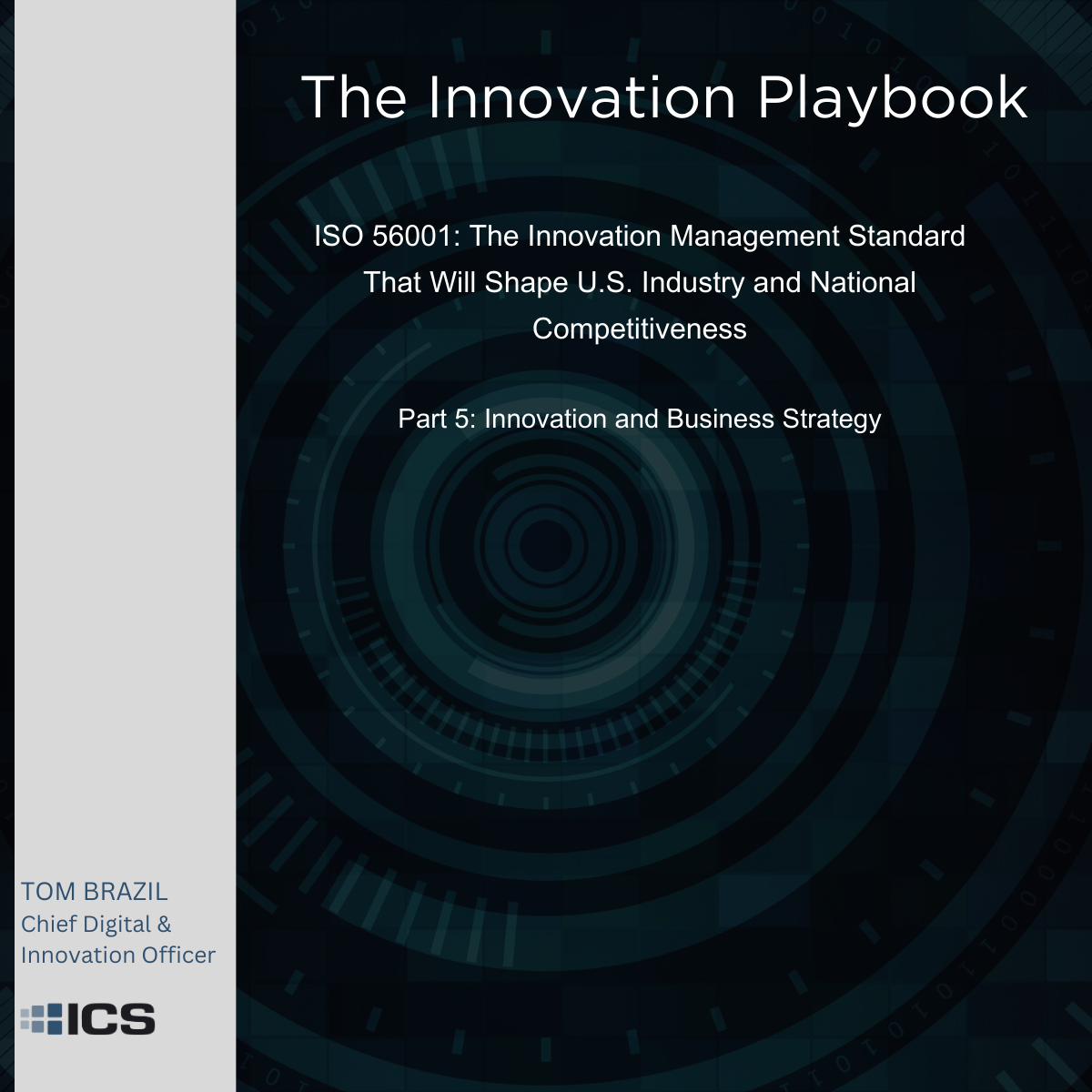
In previous discussions, we explored what ISO 56001 is, how it’s structured, and the process for certification and compliance. By now, it’s clear that ISO 56001 is not just about innovation for the sake of innovation—it’s about managing it strategically. But here’s where the conversation shifts from compliance to competitive advantage. For organizations in defense, […]
Part 4: Certification and Compliance
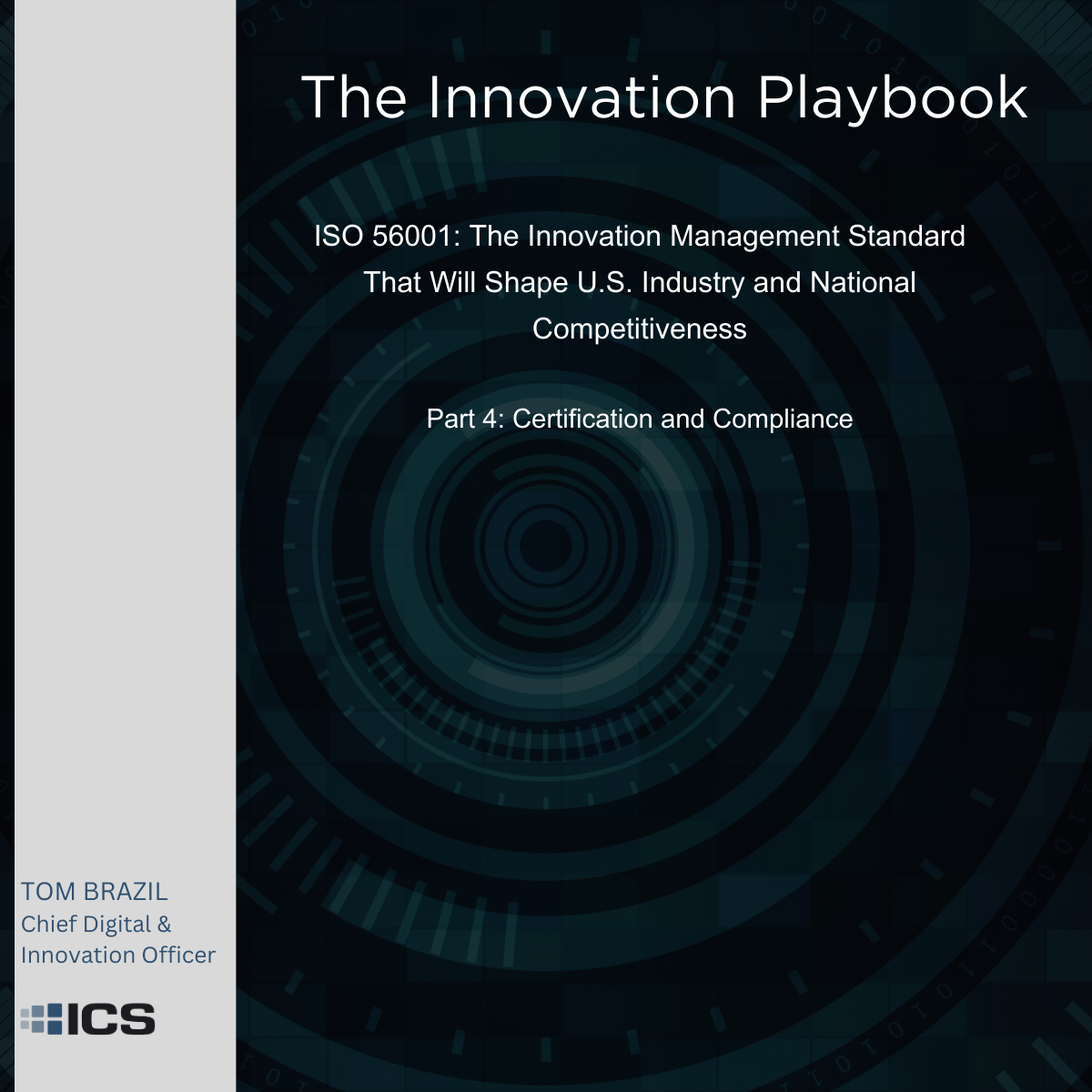
In previous discussions, we explored the fundamentals of ISO 56001, its core components, and the steps organizations can take to implement it successfully. By now, the picture is clear: Innovation must be managed strategically, measured rigorously, and continuously improved. But, for businesses and government agencies looking to fully commit to structured innovation, a key question […]
Part 3: Implementation and Benefits of ISO 56001
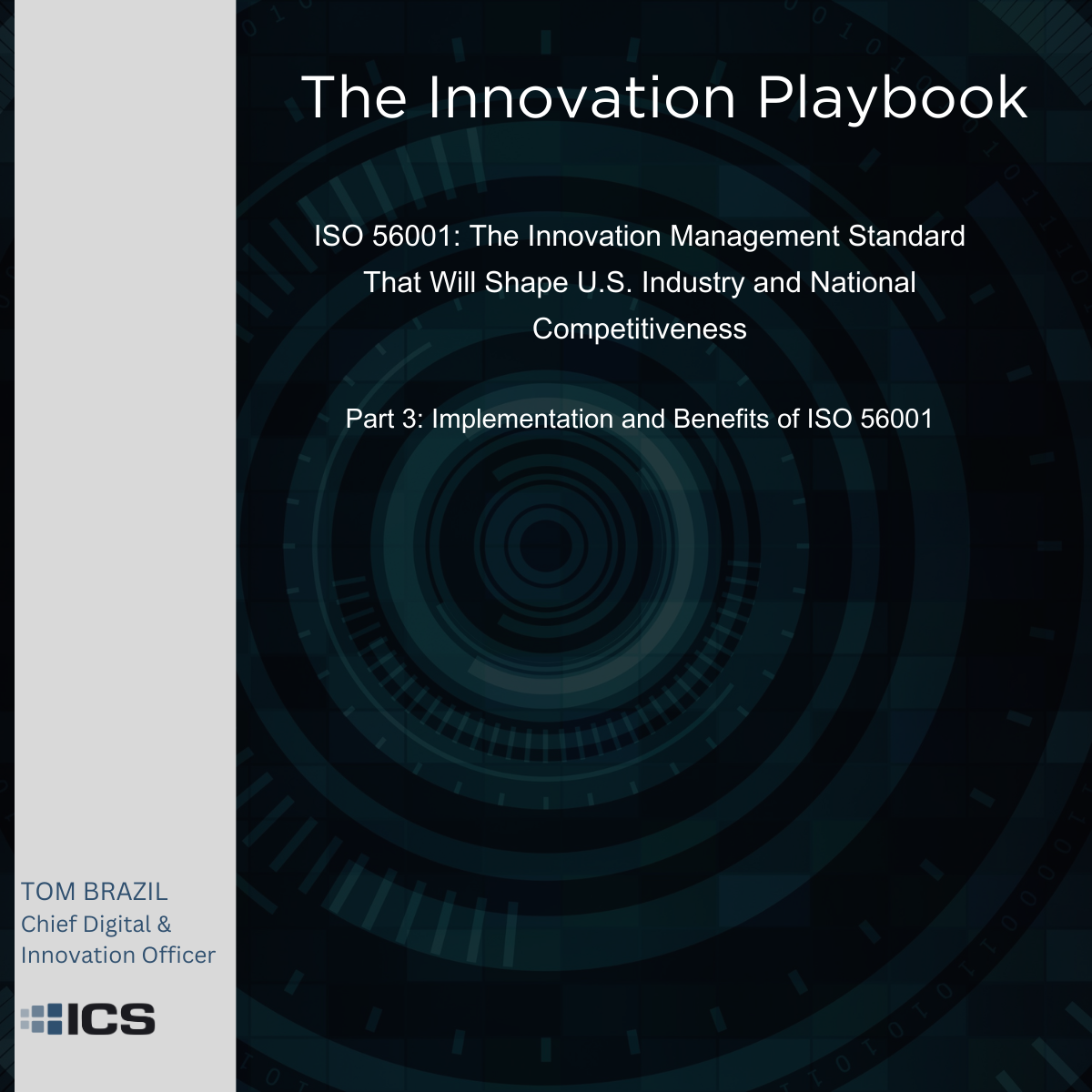
In our previous articles, we explored the fundamentals of ISO 56001 and its key components and structure. If you’ve followed along, you now understand that ISO 56001 isn’t just about encouraging innovation—it’s about managing it strategically, measuring its impact, and making it repeatable. But here’s the question many leaders are asking:🚀 How do we implement […]



